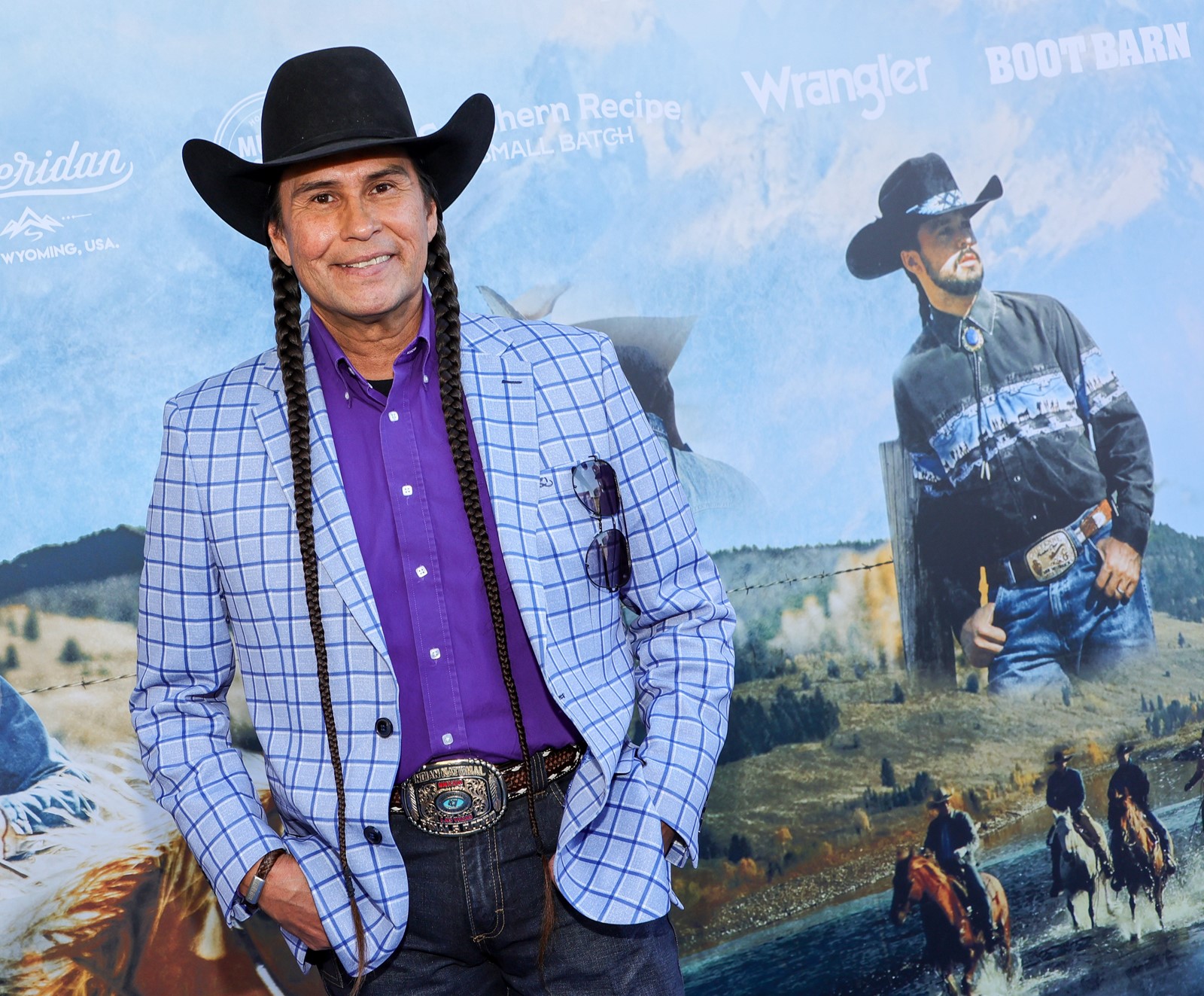
Lakota actor Mo Brings Plenty has made a career of riding tall in the saddle. He’s a key player in Taylor Sheridan’s stable of western- themed shows on the Paramount Network. He’s also a ranch owner in northeast Kansas.
But in “Yellowstone,” Brings Plenty isn’t seen much on a horse. He’s the right-hand man of tribal chief Thomas Rainwater and appears more often in a car.
But the actor, 53, who was born and raised on the Pine Ridge Reservation in South Dakota, got his start as a horseman. His traditional Lakota name is Ta Sunke O’yuspa Un (He Catches His Horse).
He was featured as Crazy Horse in several History channel docuseries. As an Apache warrior in the movie “Cowboys & Aliens” (2011), he was aboard a horse. He also was in “The Revenant” (2015) as a stunt rider. And perhaps most recently, he appears in “Lawman: Bass Reeves” and “Wildfire: The Legend of the Cherokee Ghost Horse.” Brings Plenty is an actor but keeps it real on his Kansas ranch.
“I’m in the hottest TV show in the world — and I still scoop poop if that says anything,” he said. “But, I love it.”
This interview with Brings Plenty has been edited for clarity and length.
Q: You’ve mentioned that it’s a horse’s desire to be your friend, but in some cases, horses might not want to have anything to do with their riders. What’s behind your strong connection with horses?
A: It’s more of the love of the challenge of it. I love what they represent and just who they are because in our culture as Lakota people the horse symbolizes the spiritual realm. The horse is the bridge between the physical and the spiritual. And the horse is our physical angel. That’s why back in the day, the warriors did everything off the back of the horse, from the time we are children through all of our adult life. It’s a relationship. When I look at us as people, we are afraid of happiness. And horses, they bring that happiness, they bring that joy. You can have a horrible moment at a grocery store or a horrible moment driving home on the road. But the moment you get in the presence of the horses, it’s all gone. There’s always a strong connection. The horse played a vital role in our cultural identity. We have songs and ceremonies that date back thousands and thousands of years that are specifically for the horse.
Q: How do you verify and confirm cultural accuracy around Native American issues in your role on Sheridan’s shows?
A: Whatever tribe is represented (on Sheridan’s shows) is the tribe that I go to seek out the language speakers, the knowledge keepers of their culture, and to make sure that we get the right people involved from that tribe starting in getting support from the tribal council. I’m just simply the connector. I prefer it that way. Every tribe is different. Some things are universal. But in our day-to-day lives, we’re different. I can’t represent a tribe outside of my own. I make sure that the representation is coming from the grassroots people from whichever tribe is represented in the show. I like to do that because I feel that the grassroots people that kept the language alive and still speak it, and the culture and so forth, have that first opportunity to be the representation. That’s very important to me because not one person can speak for all tribes.
Q: Native American programming was on an upswing, but it seems to have fallen off a bit with the nonrenewals of ABC’s “Alaska Daily” and Peacock’s “Rutherford Falls” and the final season of FX’s “Reservation Dogs.”
A: It makes me wonder if we’re going to go through a dry spell for a number of years before it comes back. I’m not going to lie, that’s a thought that crosses my mind. Hopefully, it’s just we’re making room for more shows about American Indian people.
Q: What’s on your horizon as an actor?
A: I’ll do what I can, and just whatever opportunities I’m given, I hope I am able to deliver it 110%, regardless of what it is. I want to continue to grow. I hope that as long as that desire to grow is there, then I’ll continue to pursue it.
Q: How did your relationship with Sheridan develop?
A: Horses. Horses bring everyone together. It doesn’t matter what’s your race, what nationality, what faith, what political views anyone has, horses will always bring people together. Another thing is my respect level for who Taylor is because Taylor spent time on our reservations. He participated in our ceremonies. He understands, and he gets it. And he understands and knows where the people are and how they got where they are today. He’s changing the narrative of our identity in society. He hasn’t created one negative Native character. They’ve always been strong, always been highly educated, traditional, brave, courageous and strategic. I have a great deal of respect for who he is as an individual, not just as a writer, but as a person. I consider him a brother, not just a friend. I have a lot of love for him and his family.


 PREVIOUS ARTICLE
PREVIOUS ARTICLE
